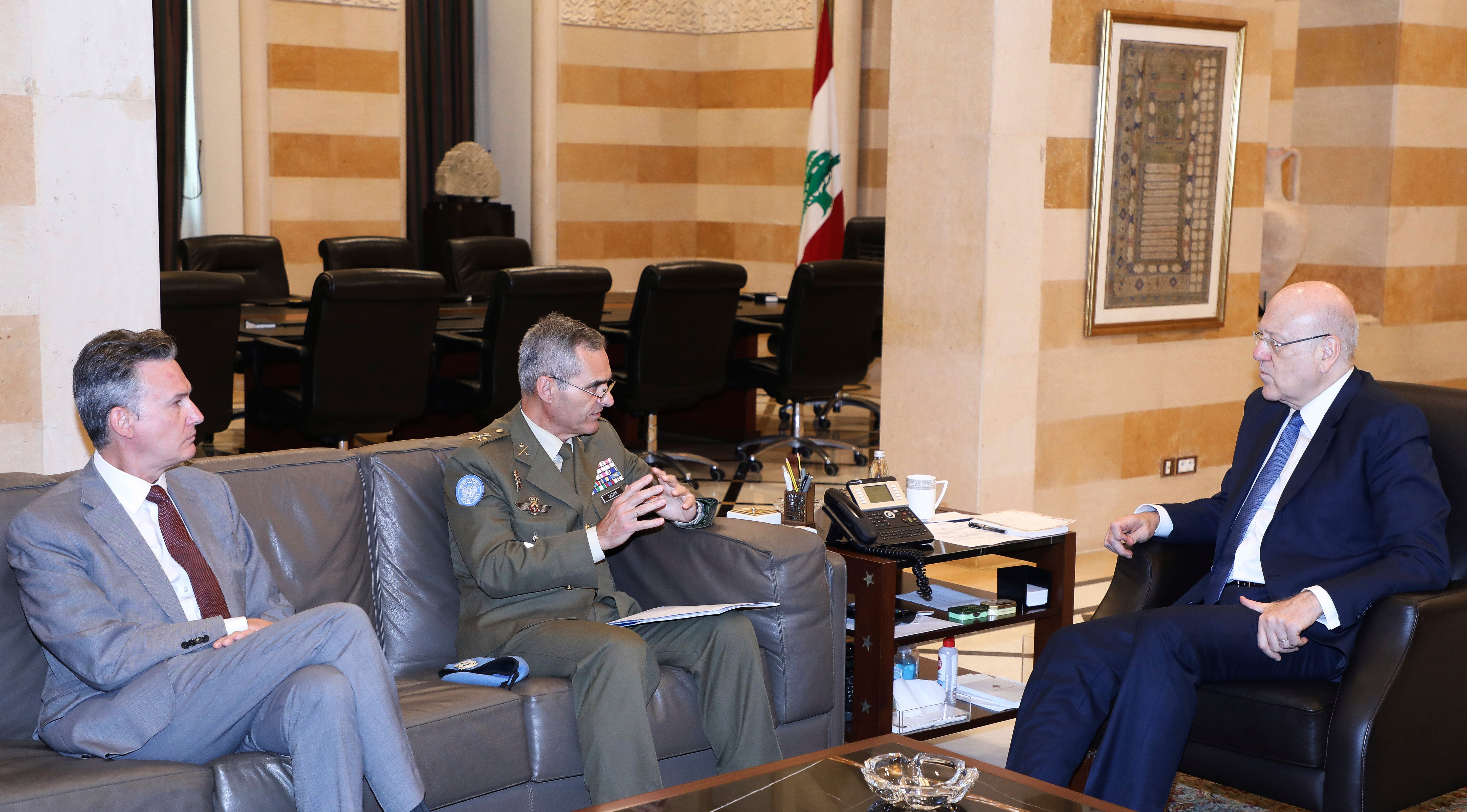Israel asks Lebanon to remove militant Hezbollah tent from tense border area
The commander of the U.N. peacekeeping force deployed on the tense Lebanon-Israel border has relayed an Israeli request to remove a tent set up by the militant Hezbollah group in a disputed area

The commander of the U.N. peacekeeping force deployed on the tense Lebanon-Israel border relayed Monday an Israeli request to remove a tent set up by the militant Hezbollah group in a disputed area.
The commander of the U.N. peacekeeping force known as UNIFIL, Maj. Gen. Aroldo Lázaro, met Monday in Beirut with caretaker Prime Minister Najib Mikati and Parliament Speaker Nabih Berri.
Lebanon Foreign Minister Abdallah Bouhabib said Lebanese leaders told the U.N. commander that Israel should withdraw its troops from the Lebanese part of the town of Ghajar that was captured by Israeli troops in 2006.
Israel filed a complaint with the United Nations in June claiming that Hezbollah had set up tents several dozen meters (yards) inside of Israeli territory. It's unclear what was inside the tents or what they were for.
The area where the tents were erected in Chebaa Farms and the Kfar Chouba hills were captured by Israel from Syria during the 1967 Mideast war and are part of Syria’s Golan Heights that Israel annexed in 1981. The Lebanese government says the area belongs to Lebanon.
Israeli media reported earlier this month that Hezbollah evacuated one of the two tents but there has been no confirmation from the Iran-backed Lebanese group.
After the meeting between Mikati and Lázaro, Bouhabib told reporters that the U.N. team has relayed the Israeli request that the tent be removed. He added that Lebanese officials told Lázaro that “we want them (Israelis) to withdraw from Ghajar that is considered Lebanese territory.”
Israel captured Ghajar from Syria in the 1967 war when it took the Golan Heights. After the Israeli military ended an 18-year occupation of southern Lebanon in 2000, U.N. surveyors split Ghajar between Lebanon and the Israeli-controlled Golan, but Israel reoccupied the northern half during the 34-day war with Hezbollah in 2006.
In recent weeks, Lebanese officials said that Israel has built a wall around the Lebanese part of Ghajar warning that Israel might annex it to the Israeli part of the town.
Hezbollah last week issued a harsh statement calling Israel’s works around the Lebanese part of Ghajar as “dangerous” adding that the wall is separating the town “from its natural and historic surroundings in Lebanon.”
Almost at the same time that the Hezbollah statement on Ghajar was issue, an anti-tank missile was fired from Lebanon near Ghajar — with some fragments landing in Lebanon and others inside Israeli territory. Israel fired shells on the outskirts of the nearby village of Kfar Chouba.
Israel and Hezbollah fought to a draw in a monthlong war in Lebanon in 2006. Late last month, Hezbollah said it shot down an Israel drone flying over a village in southern Lebanon.
Israel considers Hezbollah its most serious immediate threat, estimating it has some 150,000 rockets and missiles aimed at Israel.
Bookmark popover
Removed from bookmarks